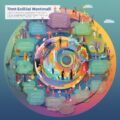Understanding the Lazarus and Folkman Coping Model
The Lazarus and Folkman coping model outlines three levels of coping that people utilize when faced with stress. Developed by psychologists Richard Lazarus and Susan Folkman, this model aims to explain how we respond to difficult life events and challenges.
Problem-Focused Coping
The first level is problem-focused coping, which involves taking active steps to address the stressor and change the situation. For example, making a plan of action, seeking information and resources, or acquiring skills. This direct approach works best for controllable problems.
Emotion-Focused Coping
The second level is emotion-focused coping. This involves regulating your emotional responses and managing distressing feelings about the situation. Strategies like meditation, exercising, or seeking emotional support from others fall into this category. This indirect approach works well for uncontrollable problems.
Meaning-Focused Coping
The third level is meaning-focused coping, which entails changing your perspective and finding purpose or meaning in the stressful event. This might involve reinterpreting the stressor more positively, seeing benefits, or aligning it with your beliefs and values. This deeper approach helps with acceptance.
Coping Flexibly and Adaptively
The Lazarus and Folkman model emphasizes that coping is a process that changes over time as we gain resources and perspective. Coping flexibly across these levels helps us manage challenging situations adaptively and promotes wellbeing.
FAQ
What are the three levels of coping?
The three levels are problem-focused coping, emotion-focused coping, and meaning-focused coping.
What type of coping is most effective?
There is no universally “best” coping strategy. Effectiveness depends on fit with the controllability of the stressor and a flexible use of different strategies over time.
How can coping help mental health?
Coping helps us tolerate and minimize distress, continue functioning, and find meaning. This protects mental health when faced with crises or adversity in life.
What are some examples of emotion-focused coping?
Examples include exercising, meditation, humor, seeking emotional support, relaxation techniques, acceptance, positive reinterpretation of the situation.
How do you develop meaning-focused coping?
Strategies include benefit finding, redefining the stressor through a lens of your values, understanding larger purpose through spiritual beliefs, and seeing opportunity for personal growth.









